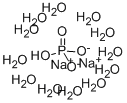Carboxymethylcellulose sodium salt: a kind of cellulose derivate.
Carboxymethylcellulose sodium salt (Sodium carboxymethyl cellulose or CMC) is one of the most essential products of cellulose ethers, which are formed by natural cellulose modification as a kind of cellulose derivate with an ether structure. Because the acid form of CMC has poor water solubility, it is usually preserved as sodium carboxymethylcellulose, widely used in many industries and regarded as monosodium glutamate in industry. It is a non-toxic and biodegradable water-soluble polymer used as an adhesive and cross-linking agent in the pharmaceutical industry. CMC could be used as flocculating agent, chelating agent, emulsifier, thickening agent, water-retaining agent, sizing agent, film-forming material, and so on. CMC is also widely applied in electronics, pesticides, leather, plastics, printing, ceramics, and the daily-use chemical industry. Moreover, due to its excellent properties, wide application, and developing potential fields, CMC has broad application prospects.
Sodium carboxymethylcellulose is readily soluble in water and is insoluble
in organic solvents. The material is used as a soil-suspending agent in
detergents, suspending agent in latex paints and as an adhesive; it is also used
as a stabilizer in food products such as ice cream.



